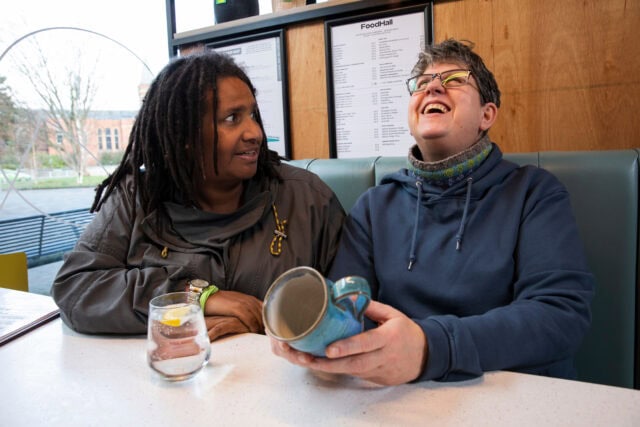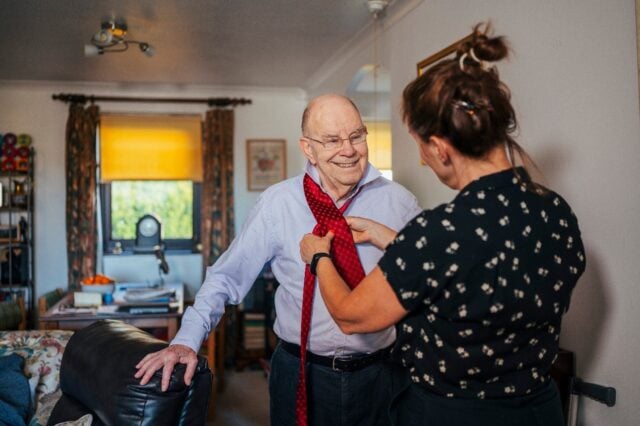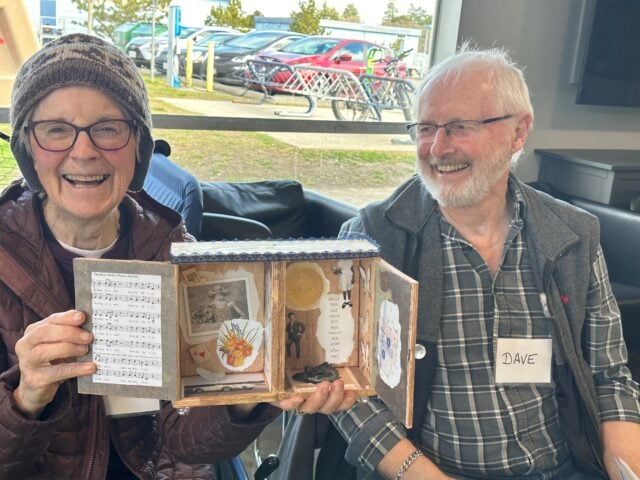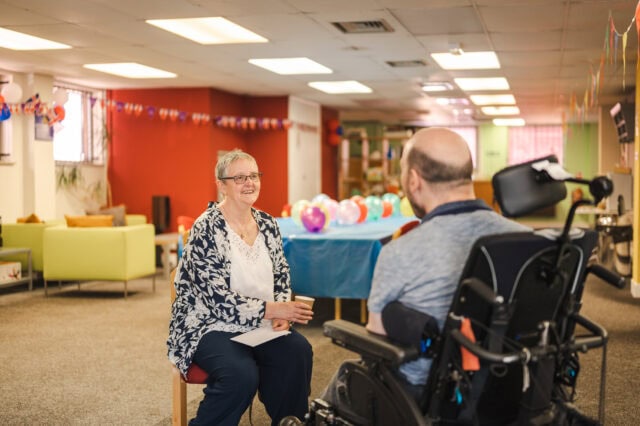By Dr. Kate Dupuis
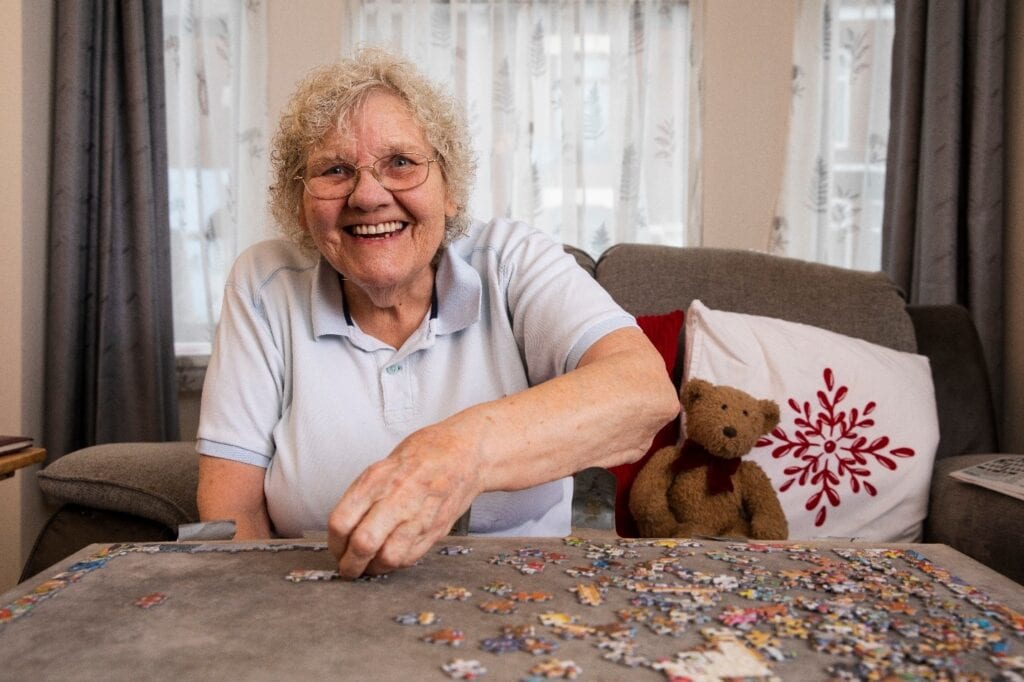
My name is Kate Dupuis and I am a psychologist, researcher, and professor. In my work, I help people participate in activities that are meaningful to them to help ensure their days have purpose and direction. We know that many older adults, including those living with dementia, enjoy participating in activities that are artistic, creative, and allow for self-expression. These can include painting, singing, sewing, woodworking, cooking, and gardening. Participation can be more passive in nature, such as watching the Nutcracker on television, or more active, such as dancing around the kitchen while preparing a cup of tea.
More and more research shows us just how crucial these types of activities can be for our health and well-being, in particular for our mood and social connections, right across the lifespan. Arts participation can be particularly beneficial for individuals living with dementia, for example those who have challenges with verbal communication. Watching a favourite movie, flipping through a photo album, or even reading a familiar poem can lead to reminiscence and connection opportunities. For individuals who experience responsive behaviours (personal expressions) such as wandering or fidgeting, arts participation, such as listening to a well-known song or colouring, can help to centre and calm them. Participation may look different as the dementia journey progresses, with some people transitioning from more active to passive engagement. The calm, joy, and sense of “flow” that can emerge when creating can also be an opportunity for care partners to see the individual in a different light, for the burden of care to lift momentarily, for the spark of that person held deep inside to once again be revealed and celebrated.
The Alzheimer Society of Canada has helpful tips on participating in arts and creativity for individuals living with dementia and those who care for them:
https://alzheimer.ca/en/whats-happening/news/few-tips-art-creativity-dementia
During the COVID-19 pandemic, many arts organizations moved to online delivery of programming, such as pre-recorded concerts, or live online dance instruction. While many individuals now enjoy the opportunity to return to in-person programming, virtual programs remain a good option for helping people explore their skills from the safety and comfort of their own home. These options may also provide an opportunity for respite for care partners. Here is a great list of resources compiled by the Ontario Centres for Learning, Research, and Innovation in Long-term Care (CLRI):
clri-ltc.ca/resource/vce-guide
Some Canadian arts organizations have even created dementia-friendly programming, both in-person and online, to help engage individuals and their care partners. These can be wonderful opportunities to explore learn new things, make new connections, and, for care partners in particular, to meet others going through a similar experience and share stories and support.
Examples include the Art Gallery of Hamilton:
https://www.artgalleryofhamilton.com/program/dementia-friendly-days-august/
the Art Gallery of Ontario:
https://alz.to/dementia-programs-activities/guided-tours
and the Toronto Symphony Orchestra:
https://www.tso.ca/concerts-and-events/relaxed-performances/
_ _ _ _

Dr. Kate Dupuis is the Schlegel Innovation Leader in Arts and Aging at Sheridan College in Oakville, and is affiliated with the Schlegel-UWaterloo Research Institute for Aging in Waterloo, Ontario. Kate is a registered Clinical Neuropsychologist and a researcher whose work lies at the intersection of arts, health, and aging. In her research, Kate seeks to identify both the potential personal and systemic barriers to participation in the arts, how we can facilitate arts engagement in older adults, and what being “creative” or “artistic” mean to us as we age. Kate strives to understand how the arts can benefit all domains of health and well-being, including cognitive, physical, emotional and social well-being, and how we can encourage and foster creativity and innovation across the lifespan. At Sheridan College, Kate is a professor in the Social Service Worker: Gerontology program in the Faculty of Applied Health and Community Studies.
Would you like to curate a resource list for the Behaviours in Dementia Toolkit? Reach out to CCSMH knowledge broker Nick Ubels at [email protected]

